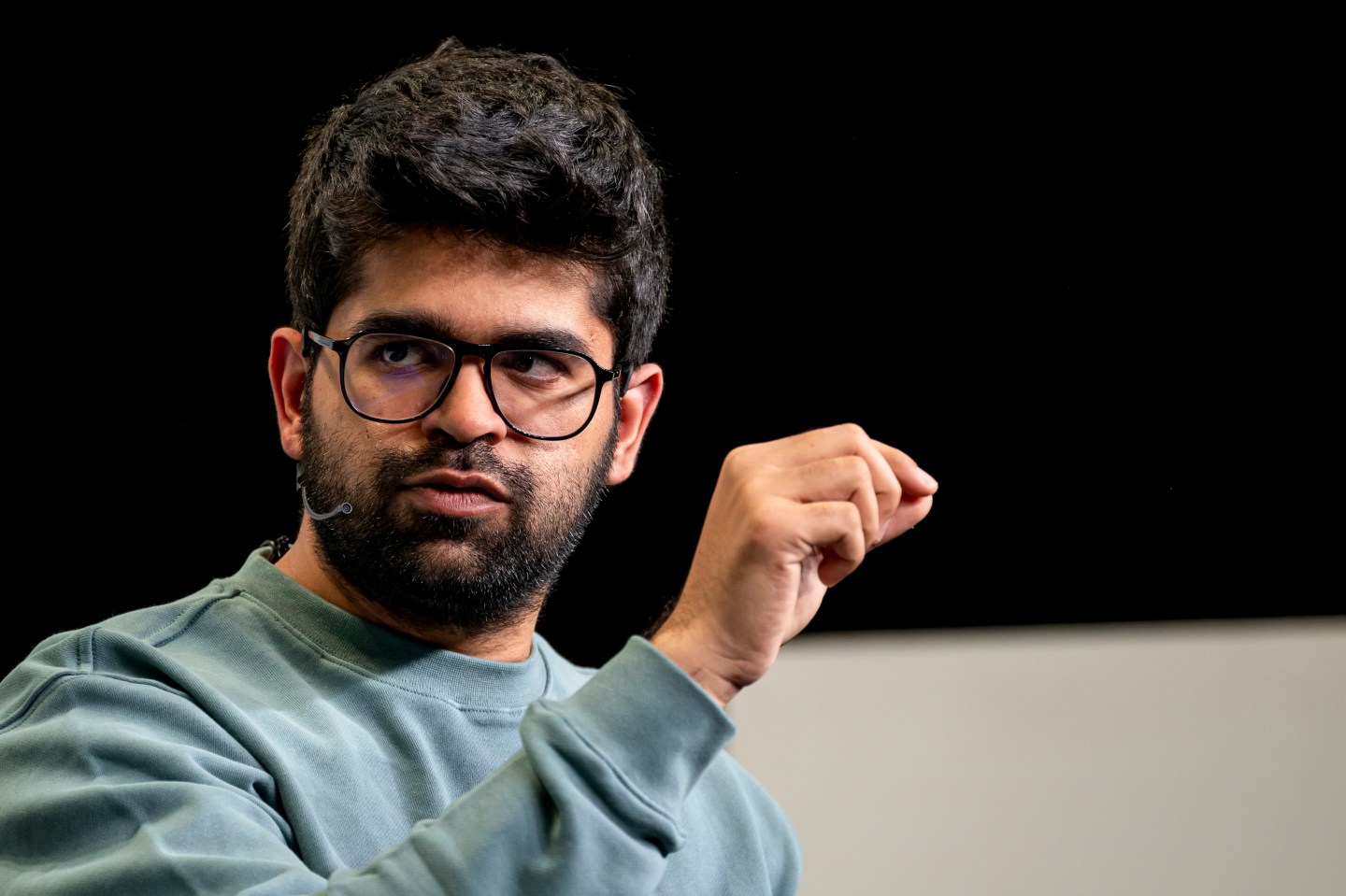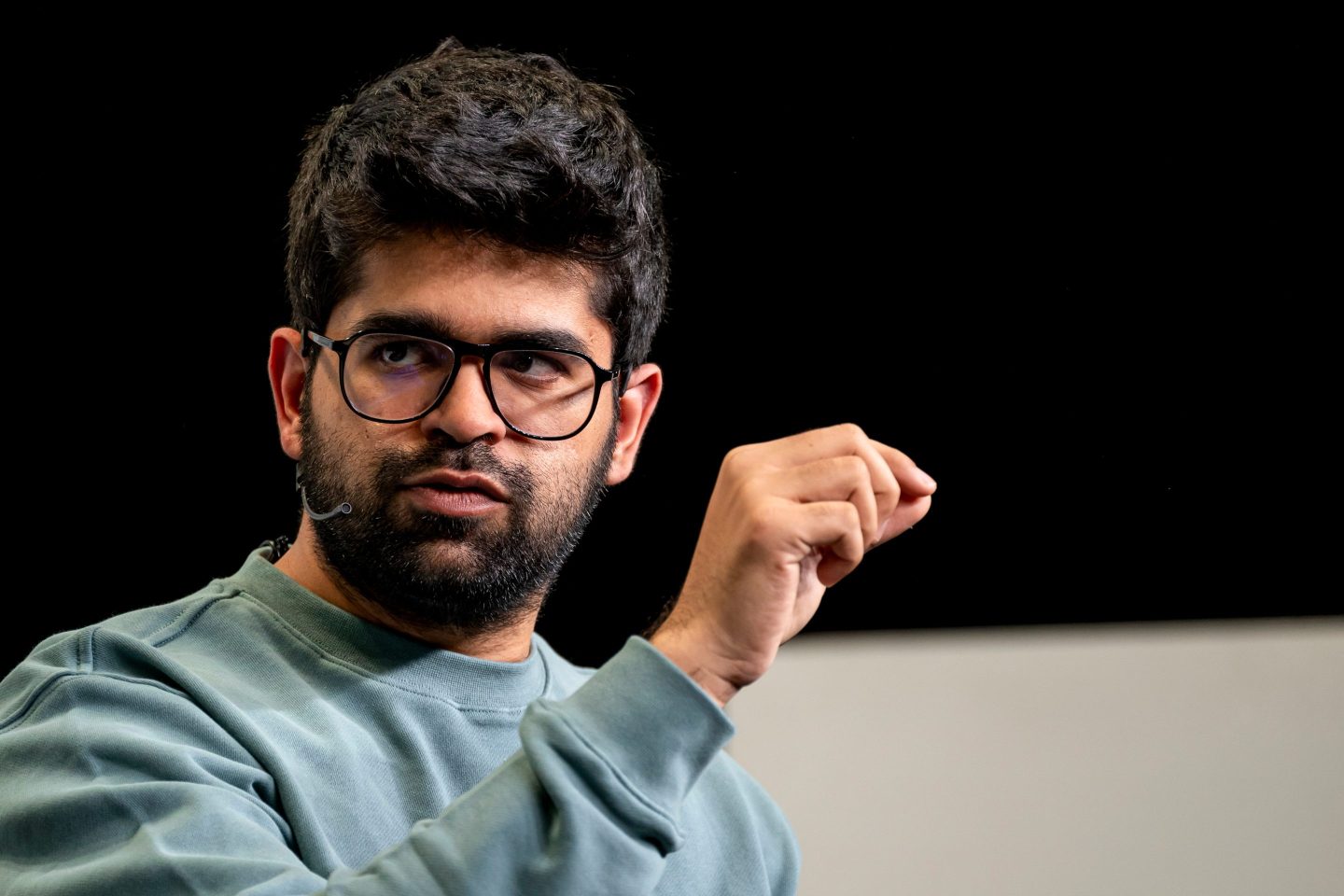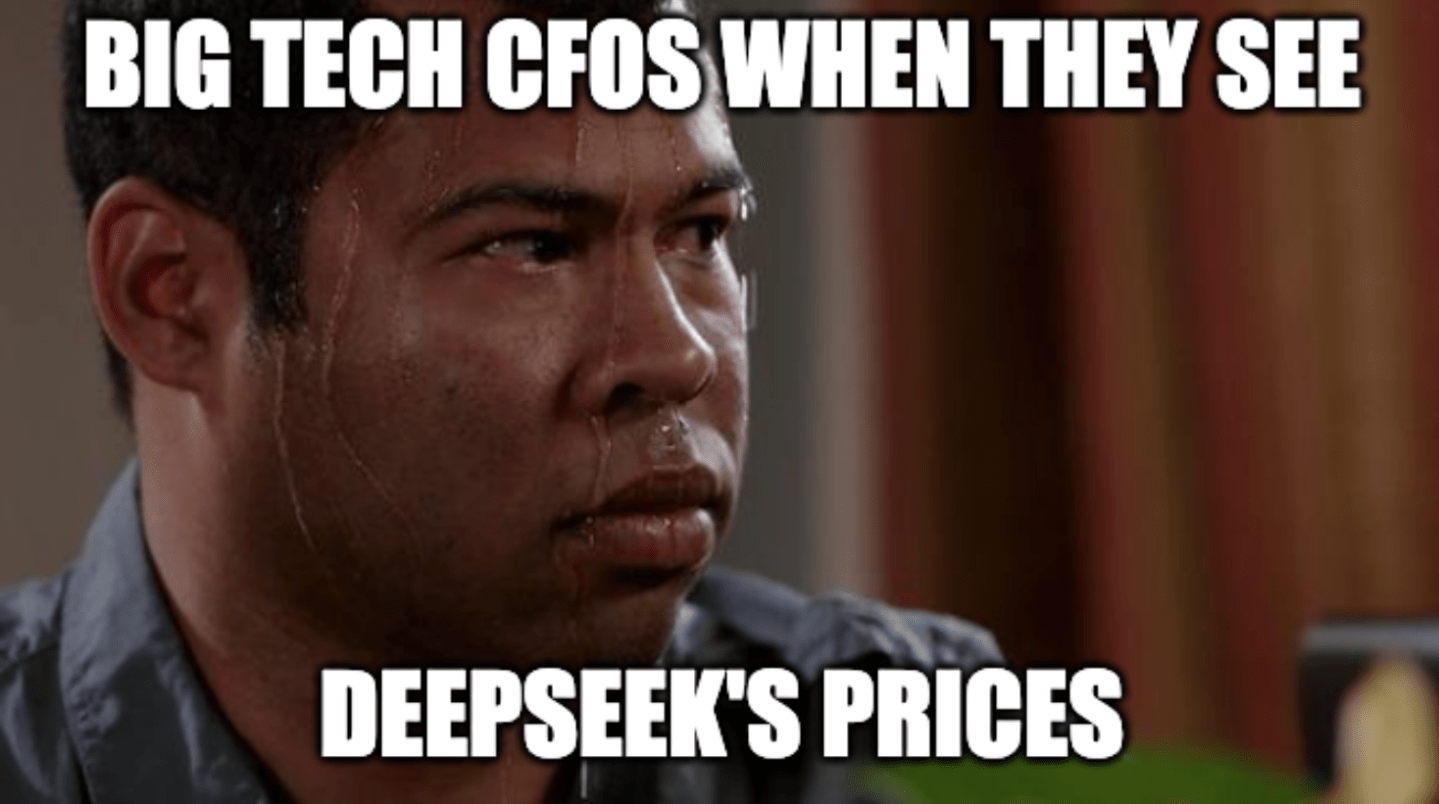Good morning. Next time you’re at the airport, take a good look at those facial recognition machines. How accurate do you think they are?
According to the TSA, the tech is 99% accurate—unless you’re Black. Then it’s 98%, the lowest face-matching success rate of any demographic.
Why the delta? In part from “a lack of Black faces in the algorithms’ training data sets,” according to Georgia State University researchers.
As record producers like to say: Garbage in, garbage out. —Andrew Nusca
Want to send thoughts or suggestions to Data Sheet? Drop a line here.
Perplexity’s TikTok bid could give U.S. gov’t 50% stake

The San Francisco AI startup Perplexity has presented a new proposal to TikTok’s parent company, ByteDance, to acquire its U.S. business.
The arrangement would allow the U.S. government to own up to 50% of a new entity that merges Perplexity with TikTok’s U.S. business, according to an Associated Press report.
TikTok was banned in the U.S. by bipartisan law on Jan. 19. President Trump said last week he was interested in a deal that would give the federal government a stake in TikTok, and issued an executive order halting enforcement of the law for 75 days to make a deal.
ByteDance resisted the prospect of sale before the ban went into effect, but it is now reportedly entertaining offers from several suitors.
According to the AP report, the Perplexity proposal would allow the U.S. government to own up to half of the new entity once it makes an initial public offering of at least $300 billion. The government would reportedly neither gain voting power nor a seat on the new company’s board.
Further, ByteDance would not supply the business with its proprietary algorithm that informs what users see on the app, according to the report—a key part of what facilitated the U.S. ban. —AN
Everyone is talking about DeepSeek, ‘AI’s Sputnik moment’
The No. 1 free app in the U.S. Apple App Store at the time of this writing?
None other than DeepSeek, the Chinese AI assistant that’s got everyone in Silicon Valley talking. (Rival OpenAI, by the way, was the No. 3 free app.)
The Hangzhou company’s reasoning model, DeepSeek-R1, “performs reasoning tasks at the same level as OpenAI’s o1,” per Nature—but for a fraction of the cost and as a partially open system that researchers can study, unlike OpenAI.
“Deepseek R1 is one of the most amazing and impressive breakthroughs I’ve ever seen—and as open source, a profound gift to the world,” said venture capitalist Marc Andreessen on X, later adding that it’s “AI’s Sputnik moment.”
The advances of the Liang Wenfeng-led lab have divided opinion. Welt reporter Holger Zschaepitz said DeepSeek could raise questions about the runaway funding flowing to U.S. AI startups; Y Combinator CEO Garry Tan said it would just drive more use of AI.
Meta’s Yann LeCun said DeepSeek’s success shows that open models win against completely proprietary ones. Salesforce CEO Marc Benioff said it shows the importance of the data over the model. And Dropbox’s Morgan Brown said the “efficiency genie” is out of the bottle: “There’s no going back to the ‘just throw more GPUs at it’ approach.”
Most folks working in the tech industry cheered the leap as beneficial for all. But DeepSeek’s success did raise questions about political priorities in the U.S.
American export controls around the most advanced AI chips have “essentially backed Chinese companies into a corner,” AI researcher Matt Sheehan told MIT Technology Review, “where they have to be far more efficient with their limited computing resources.” —AN
Meta will spend $65 billion to support AI
Meta CEO Mark Zuckerberg says the company will spend as much as $65 billion this year on AI infrastructure, including a data center with power requirements of at least two gigawatts (that’s the equivalent of two nuclear reactors’ output) and a physical footprint “so large it would cover a significant part of Manhattan.”
Zuckerberg said in a Facebook post that he expects Meta AI to be “the leading assistant serving more than 1 billion people,” and the Llama 4 open-source AI model to “become the leading state of the art model.”
“We’ll build an AI engineer that will start contributing increasing amounts of code to our R&D efforts,” he added.
The move comes just after Microsoft said it would invest $80 billion in AI infrastructure this year, and OpenAI announced the “Stargate” infrastructure project alongside SoftBank and Oracle, which will see $100 billion invested imminently.
This is an enormous amount of money to be sloshing around for a technology that is yet to prove itself profitable—particularly when Chinese companies are now putting out models that seem to beat OpenAI and Meta’s performance at a fraction of the cost. —David Meyer
More data
—“Tesla shame” is a thing in the Netherlands, thanks to Elon Musk’s recent politicking.
—Parlays are driving revenue for sports betting companies like FanDuel and DraftKings.
—Chinese esports growth stalls. Tencent, Huya look beyond the world’s largest esports market for expansion.
—Apple’s Siri is “dumb and getting dumber,” according to enthusiast John Gruber.
—Coinbase listing process must change, given volume of new tokens, CEO says.
—Space Perspectives furloughs most employees, a dire step for the Richard Branson-backed space travel startup.
—Google uses soft power to press AI agenda. Programs to train people and organizations on AI as it faces global threats of AI regulation.
—Spotify and Universal Music Group strike a new multi-year licensing agreement.














